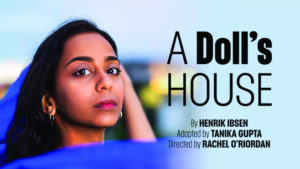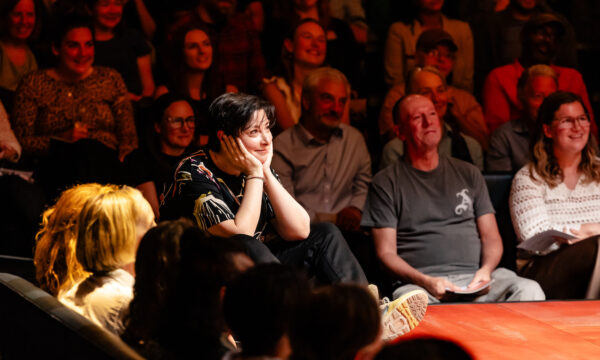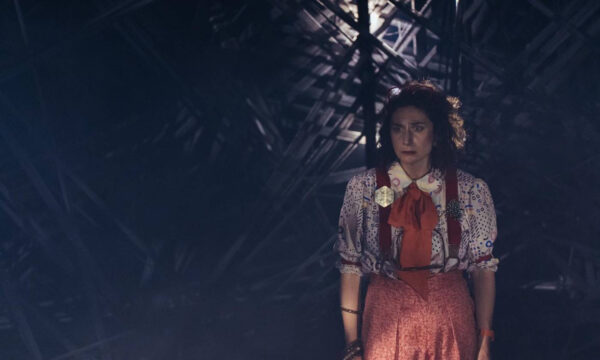A Doll’s House at the Lyric Hammersmith

Adapted by acclaimed writer Tanika Gupta under newly appointed artistic director of the Lyric, Rachel Riordan, this adaptation of Henrik Ibsen’s A Doll’s House is set in Calcutta, India, 1879, during British Colonial rule. Lily Arnold’s brilliantly structured set design captures the heat and lavishness of the West Bengal capital, through which the soft murmur of chirruping cicadas echoes. A golden courtyard houses Tom Helmer (Elliot Cowan), his wife Niru (Anjana Vasan), their servant Uma (Arindra Sadhra) and their children. Looking out towards the back of the stage is a modest but splendid veranda – Christmas stockings and Indian garlands festooning its bannisters – upon which stands a large Sal tree, with parrot cries resounding from above. Niru is dressed in a Banarasi sari, secretly snacking on sweet Jalebi and twittering away girlishly, leaving the audience laughing at her striking resemblance to Ibsen’s original Nora.
Tom, chief of tax collection, exoticises Niru, treating her like a plaything as he proclaims, “You are a very pretty but expensive pet.” Niru’s old school friend and widow Mrs Lahiri (Tripti Tripuraneni) has travelled from Dhaka, Bangladesh to Calcutta seeking employment and wishing to banish the deep loneliness she is experiencing. Through the help of the rather self-involved Niru, she is offered a job at the tax office, though at the expense and firing of Kaushik Das (Assad Zaman), a man Mrs Lahiri knew in her former years.
The score, inspired by traditional South Asian music, is relayed from the veranda by Masterji (Arun Ghosh), who plays the sounds through harmonium, clarinet and lute. Dr Rank’s name is retained and Colin Tierney gives the man an agreeable façade, concealing the character’s love for Niru while portraying him with a sympathetic quality; Rank’s stance on the invasion of India is particularly refreshing.
The transposition from 19th-century Norway to India works powerfully, Ibsen’s themes of status and women’s rights in a patriarchal society still resonating. Gupta’s timely adaptation additionally touches upon the caste system, which exists to this day, while reflecting Niru’s double life both as a converted Indian Christian and wife to an Englishman. The dramatic denouement reveals Tom’s ignorance and innate prejudice, as he admits having to go against his very nature to marry Niru, and we are left reeling but vicariously triumphant through her departure. When the tone shifts and Tom attempts to recover his outbursts, the audience laugh loudly, as his true nature and delusions of grandeur are laid bare. Though the second act languishes slightly due to length, Cowan and Vasan portray the married couple deftly, well-matched by the supporting cast, while Gupta’s self-assured reworking brings the classic story of respect, reputation, money, deceit and female rights in a male-dominated world to the fore.
Selina Begum
Photo: Helen Maybanks
A Doll’s House is at the Lyric Hammersmith from 6th September until 5th October 2019. Book your tickets here.


























Facebook
Twitter
Instagram
YouTube
RSS